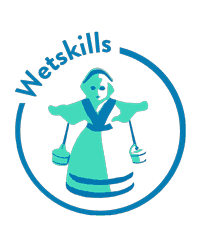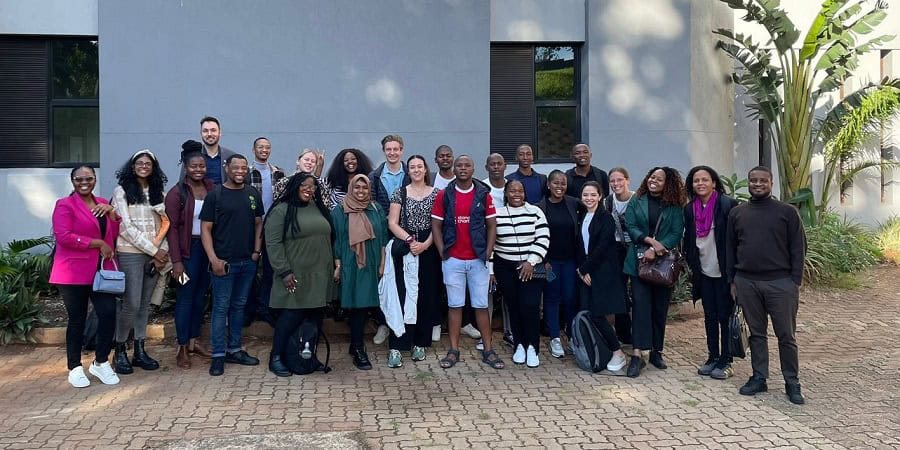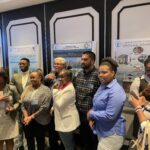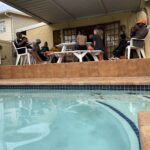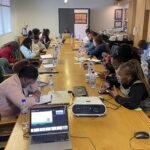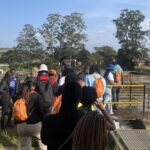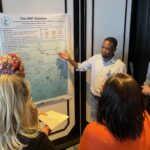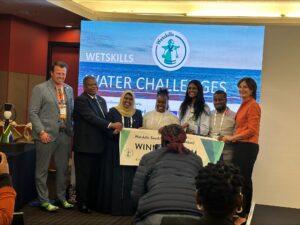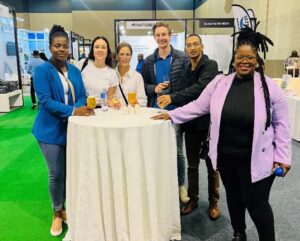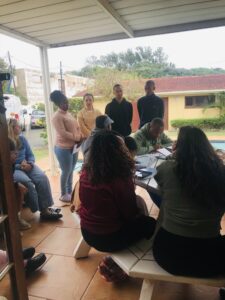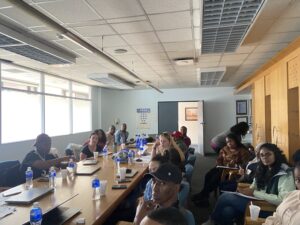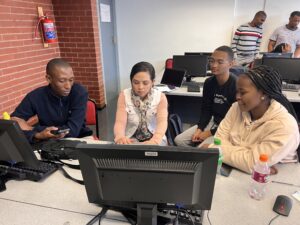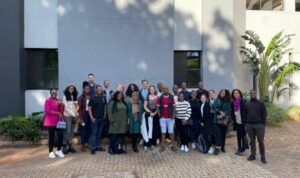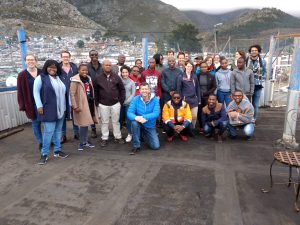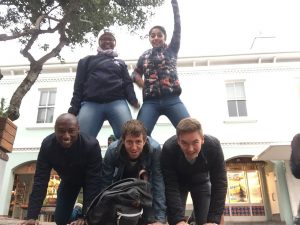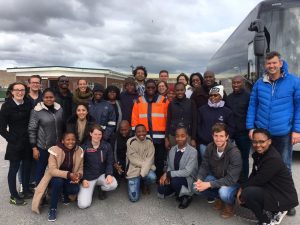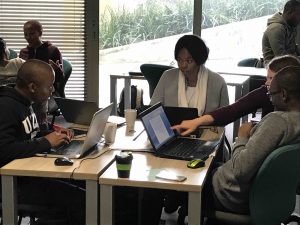
- This event has passed.
Wetskills-South Africa (Durban) 2024


Wetskills-South Africa 2024: Turning the Tide in Durban 🌊
We made another immersive journey into water innovation! Following the resounding success of the last edition, Durban was hosting this exciting event for the second consecutive year. The program started on June 2, 2024, and culminated in a grand finale featuring pitches and a poster market on June 12 at the Inkosi Albert Luthuli International Convention Centre Complex.
Picture: Participants of the Durban event. Also present is Claudia, our local host for the upcoming event in Mozambique.
Watch the Event Video!
Voices of Impact: South African Alumni Share Inspiring Insights on Wetskills Experience
Event info

Follow Wetskills
Joining this Wetskills Event – What do you get?
A unique learning experience where you will tackle real-life water challenges with your own team!
- You will develop expertise in international cooperation, problem-solving, cross-cultural understanding, and interdisciplinary teamwork.
- You will hone your networking and presentation abilities through pitch and poster
- You will get the opportunity to connect with other international water students/young professionals.
- You will immerse yourself in the vibrant coastal city of Durban, exploring water-related sites and engaging with local water professionals.
- Join parts of the WISA conference programme in Durban (incl. Wetskills Finals & Awarding Ceremony)
- You will learn and deepen your understanding of the South African water sector, gaining insights into key stakeholders, organizations, contemporary issues, and existing business opportunities.
- Upon program completion, receive a certificate of participation, officially joining the ranks of over 1200 Wetskills Alumni.
More information
For additional information please contact Craig Tinashe Tanyanyiwa, craig.tinashe@wetskills.com or Johan Oost, johan.oost@wetskills.com.
Event Blogs

Pre-presentations and start of WISA
Innovation and working through the weekend
From dawn to dusk, a Winter’s touch, memories gleam, an epitaph of the day.
Team Roles
First work Day
Event Cases

Case 1: Solutions to Acid Mine Drainage
Case owner: African Circular Economy Network
Acid Mine Drainage (AMD) is the flow or seepage of polluted water from old mining areas – particularly pervasive in mining areas of South Africa, rendering critical water sources useless at best and toxic at worst in a country that already has critical water shortages. Solutions exist to remediate and harvest this polluted water for the benefit of the citizenry. Yet, the country instead spends billions of Rands securing water from neighbouring countries to meet the water demands. How can we implement local solutions for local opportunities that are more sustainable?
Case 2: Water Security within the Green Hydrogen Industry
Case owner: Talbot
South Africa is emerging as a promising player in the global green hydrogen market with its abundant renewable energy resource potential. The green hydrogen market is projected to contribute 3.6% to South Africa’s GDP and contribute to the possibility of achieving net-zero carbon emissions by 2050. Collectively, these make for an attractive solution to the climate crisis. Water is an integral part of the green hydrogen process as the primary raw material for production. However, South Africa is a water-scarce country with a water industry under immense pressure.
How can South Africa leverage sustainable water supply sources and technology to reduce its reliance on freshwater resources?
Case 3: Business cases using Water Footprint Compensation funds
Case owner: Blue Deal South Africa Partnership (Dutch Water Authorities)
The Water Footprint methodology, developed two decades ago, tracks water usage across production chains. As this methodology evolves, the emerging Water Footprint Compensation platform offers a way for industries to mitigate their water consumption impacts. This includes possibilities like protecting and restoring water systems. NGOs, such as DUCT or Adopt the River, already contribute to these efforts by preserving rivers and dams. These organisations can leverage the platform to develop viable business cases. They can attract investment funds from industries eager to compensate for their water footprint, creating a sustainable model that benefits both the environment and corporate partners. How can NGOs harness this opportunity effectively?
Case 4: Improving Water Security By Protecting Strategic Water Source Areas
Case owner: Water Research Commission
Throughout the last decade, natural disasters in South Africa have become more and more prevalent. Increased frequency and intensity of flooding have caused widespread damage in the Eastern Cape, Kwa-Zulu Natal, and the Western Cape. At the same time, extended droughts have recently stifled growth in the Cape Town and Nelson Mandela Bay metros. Evidence shows that investing in and effectively managing Ecological Infrastructure (EI) could have significantly reduced the impact of such natural disasters. The WRC ecological infrastructure asset in the water sector, Strategic Water Source Areas, could provide a good gateway for protecting water-related EI, but this will require careful planning to achieve in an equitable way. This case seeks to produce an integrated approach to protecting South Africa’s Strategic Water Source Areas.
Case 5: Integrating Innovative Sanitation Technologies In School Settings
Case owner: Department of Water and Sanitation
This case study investigates integrating the innovative Larvae’d toilet system with existing WASH solutions in South African rural schools. Despite extensive initiatives, over 3,300 schools still rely on unsafe pit latrines, a legacy of apartheid that continues to endanger student safety. The proposed integration aims to replace these inadequate facilities with sustainable, hygienic sanitation solutions, leveraging community involvement and recycled materials. This initiative seeks to enhance student health and safety and explores viable business models for suppliers and schools, promising significant improvements in public health and environmental impact.
Event Partners

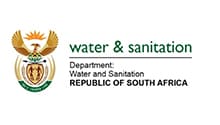
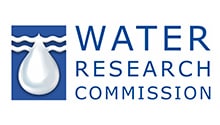
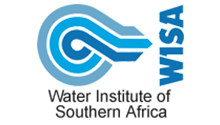
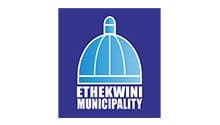


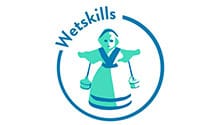
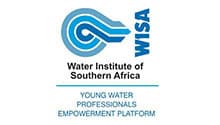
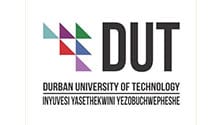
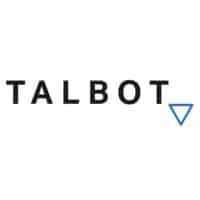


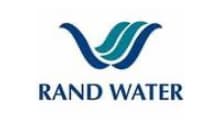
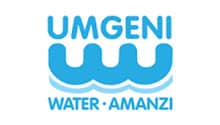
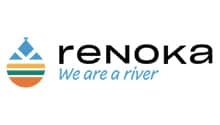
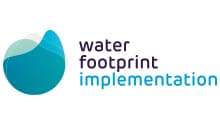
Events in Cape Town (2023) and Sandton (2022)

